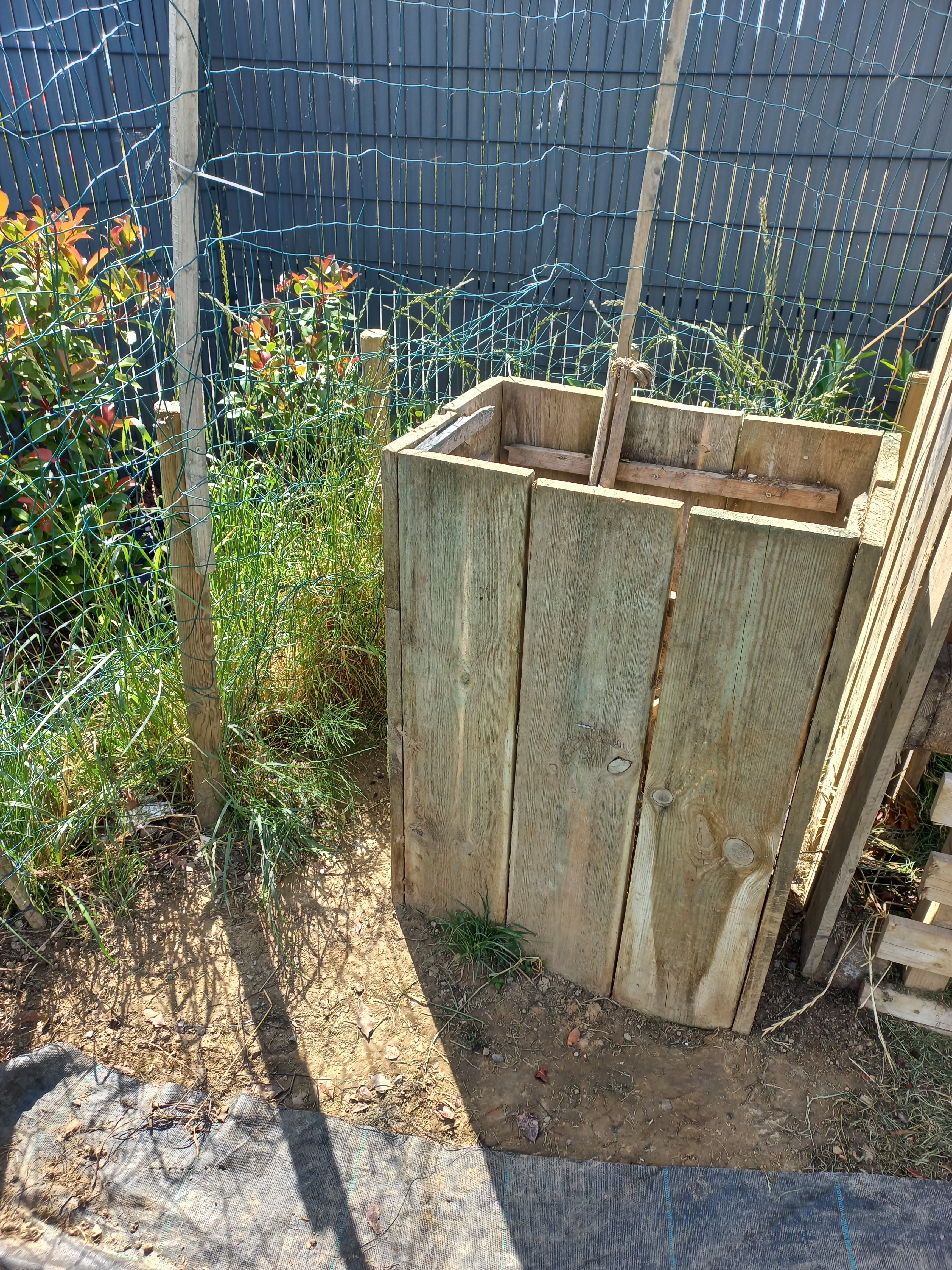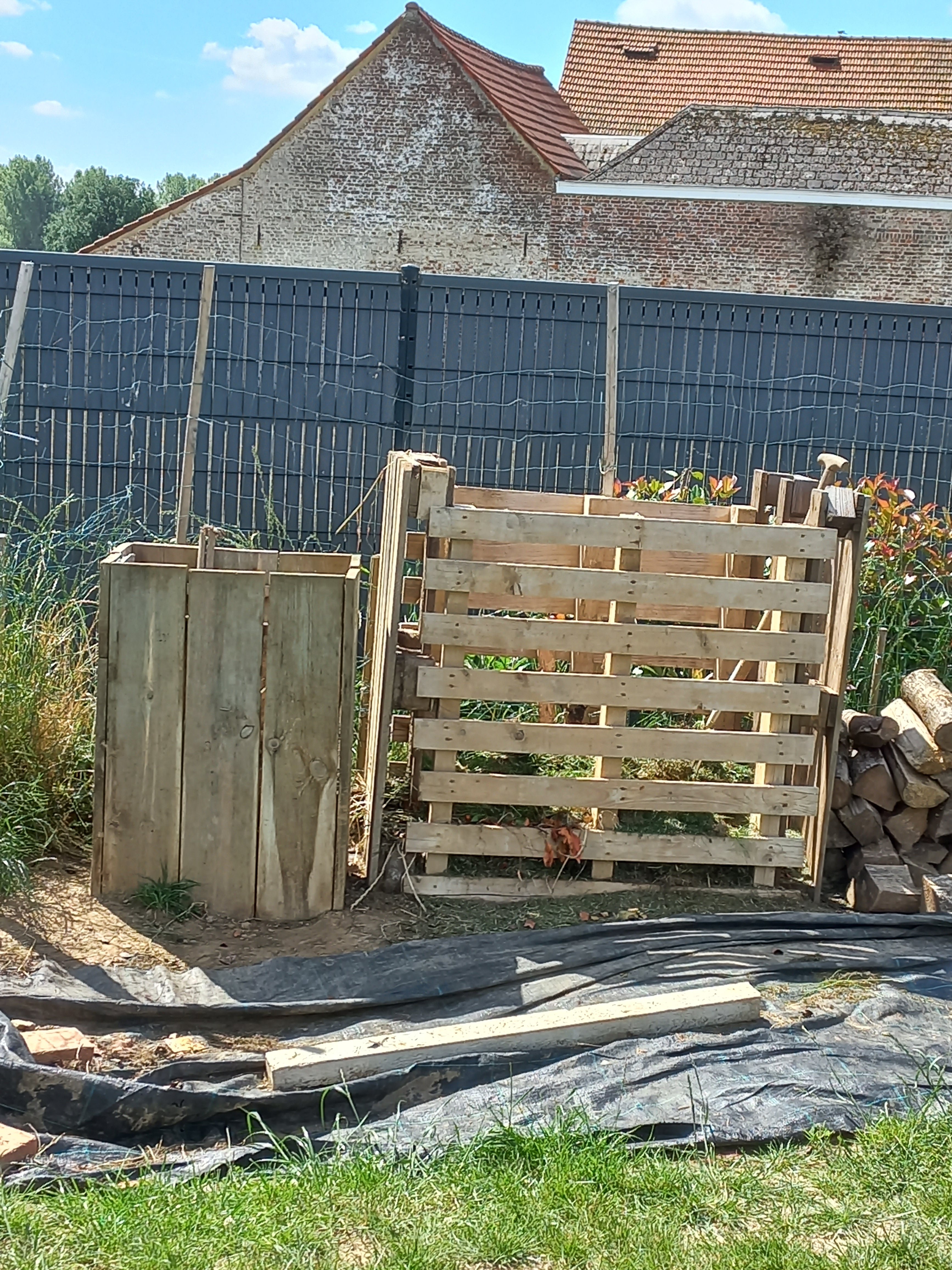Home Composter: Advantages and Disadvantages Explored for an Eco-Friendly Garden

Home Composter: Advantages and Disadvantages Explored for an Eco-Friendly Garden
The advantages and disadvantages of having a compost bin on your property!
The home composter is an ecological and economical solution for recycling household and garden waste. Indeed, vegetable waste, peelings, and kitchen residues represent a large part of our trash. Instead of throwing them away, it's possible to value them by transforming them into natural fertilizer for one's vegetable garden or plants. This is where composters come in, those bins that allow for composting biodegradable waste thanks to the action of microorganisms.
Composting is a natural process of degrading organic matter by microorganisms in the presence of oxygen. Green waste, dead leaves, lawn clippings, weeds, branches, and fermentable kitchen waste (like coffee grounds) can be transformed into a rich humus, ideal for amending and nourishing the soil of one's garden or vegetable patch.
Vermicomposting is another method of composting, which uses worms to transform waste into compost. This technique is particularly suitable for people living in apartments, as it requires very little space.
Tips for successful home composting
In this article, we will give you all the keys to successful composting at home, whether it's a bin composter or a compost heap. We will also explain how to properly aerate your compost, what waste to put in it, and what mistakes to avoid to obtain good compost, rich in nutrients for your plants. Finally, we will present the advantages of mulching, a complementary technique to composting to improve the quality of your soils.
Foreword:
Your kitchen trash, your bins don't smell good? As we say "your bins are of a nauseating stench? They don't smell like roses :-)", you're looking for an ecological, practical, comfortable solution that can easily eliminate all these odors.
Thinking of having a compost at home? Here is the list of advantages and disadvantages of having a composter at home!
The advantages of a composter: waste reduction, odors, bins.
- No more organic waste within one's house! That's the main advantage of creating a compost at home: you will no longer have organic waste (the smelly waste) within your four walls! You put them directly in your composter, and no more odors inside.
- Reusing compost to bring "minerals" within plants, flowers: you fertilize the soil for free. That's the 2nd advantage: you no longer buy organic materials, minerals, or even potting soil from hardware stores or nurseries. To create potting soil, you simply mix your soil with your compost. The soil comes to life, there's a kind of "reactivation": indeed, your soil recovers all the natural ways that are beneficial to it.
- Decrease in weight and cost of household waste: no more organic waste in the trash. The 3rd advantage, just as important as the first two: in some regions, the cost of waste is astronomical. It can go up to 3 euros per trash bag. But you also save on transport if you have to bring organic waste to the nearest container park yourself.
- Economical: it costs almost nothing Why economical? A composter doesn't cost much at your local supermarket. It costs even less if you build it yourself with pallets or reclaimed wood. However, you only pay for your compost bin, its use is always free.
- Waste is sorted by family It's rather a civic action that you instill in all family members. Isn't it a responsible way to show your children and grandchildren to be responsible from an ecological but also civic point of view? It's also an activity for your young children and a way to raise awareness about ecology.
- Ecological approach You think about the planet! Natural minerals are important for the life of the soil, but also for life in general!
- Promoting biodiversity
- Limiting pollution: Everything that is collected door-to-door by truck causes traffic that is not necessarily necessary for people who could make a compost at their home (less CO2, less use of petrol, gasoline, diesel, electricity...).
We have finished with all the advantages, now let's look together at the disadvantages of having a composter at home!
The disadvantages of a composter: space, decomposition odor
- It takes a bit of space in one's garden, balcony, or land. Indeed, you need to have a bit of space on your land, garden, balcony to make a composter at your home. The size of the composter will depend on the number of people in your family. If you put a too large compost on your balcony, make sure to check the permissible load (=the weight that your balcony can support).
- The odor of decomposition: Sometimes the compost might not have a pleasant smell during its decomposition, but it's outside! That's the main reason why we always keep the compost away from the house to avoid smelling the decomposition. It is also advised to cover the organic matter type "kitchen" (green matter) with brown matter: e.g., branches, twigs, etc. This will naturally mask the odor. Be aware that odor is generally not a problem in a compost bin, the smell disappears with the decomposition of organic foods.
- Size of the compost must be adapted to one's household If your compost is too small, it will quickly fill up and you will have to wait before you can use it! On the other hand, if your compost is too large, you will take much too long to fill it and therefore to use it afterward. Choose the right size. If you have doubts about the size of the compost you need, consult the article from Bricomachin.
- The compost is not always available on time Indeed, you have to wait more or less a year before being able to use the compost in your garden. Sometimes, you need it, but it's not ready yet.
However, there are compost activators to accelerate composting. It's useful but a shame to buy them: nature plays its role well, just be a bit patient.
- Quality and contamination The quality of your compost will depend on the balance of waste you put in your compost. Brown matter must be as present as green matter. Green matter includes all organic waste from your kitchen, lawn clippings which will bring a lot of nitrogen into your compost. Brown matter is generally harder to find: twigs, cardboard, dried grass, branches, wood, bark, ...
The worm composter: turning your waste into black gold
You may have already heard of the worm composter, this method of composting that uses worms to transform organic waste into natural fertilizer. But how exactly does it work?
Understanding the workings of the worm composter
First of all, it's important to know that the worms used in a worm composter are not just any earthworms. They are compost worms, also called "eisenia fetida" or "red worms", which are particularly suited to life in confined spaces and to the degradation of organic matter.
The worm composter consists of a bin, usually made of plastic, equipped with several stackable trays. Organic waste (fruit and vegetable peelings, coffee grounds, eggshells, etc.) is placed in the first tray, where the worms live. These worms feed on the waste and transform it into compost by digesting it.
The compost thus obtained is collected in the lower tray, while the worms migrate to the upper tray to continue their degradation work. The worm composter is also equipped with a tap that allows collecting the "compost tea", a nutrient-rich liquid that can be used as fertilizer for plants.
The advantages of vermicomposting
- It allows for recycling kitchen organic waste, thus reducing the volume of one's trash.
- It produces a quality natural fertilizer, rich in nutrients and beneficial microorganisms for plants.
- It's easy to set up and requires very little space, making it an ideal solution for people living in apartments.
So, ready to start vermicomposting? You just need to get a worm composter and some compost worms to start transforming your waste into black gold for your plants!
So, are you up for creating a compost at home?


 Francais
Francais